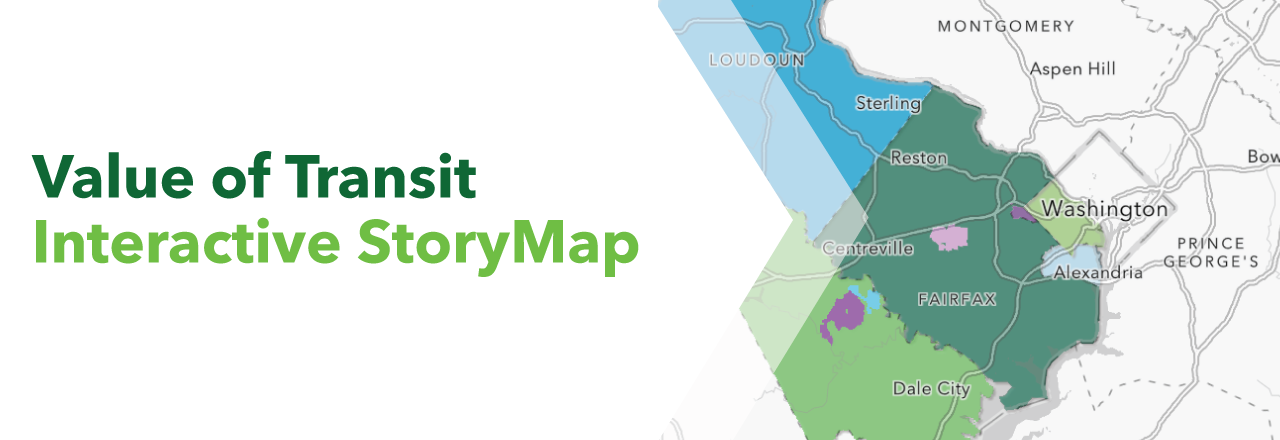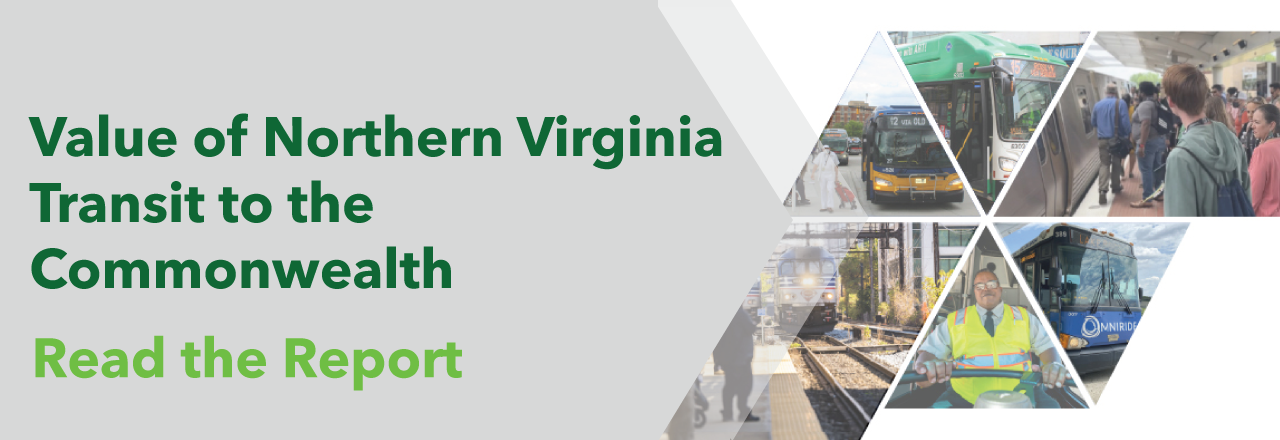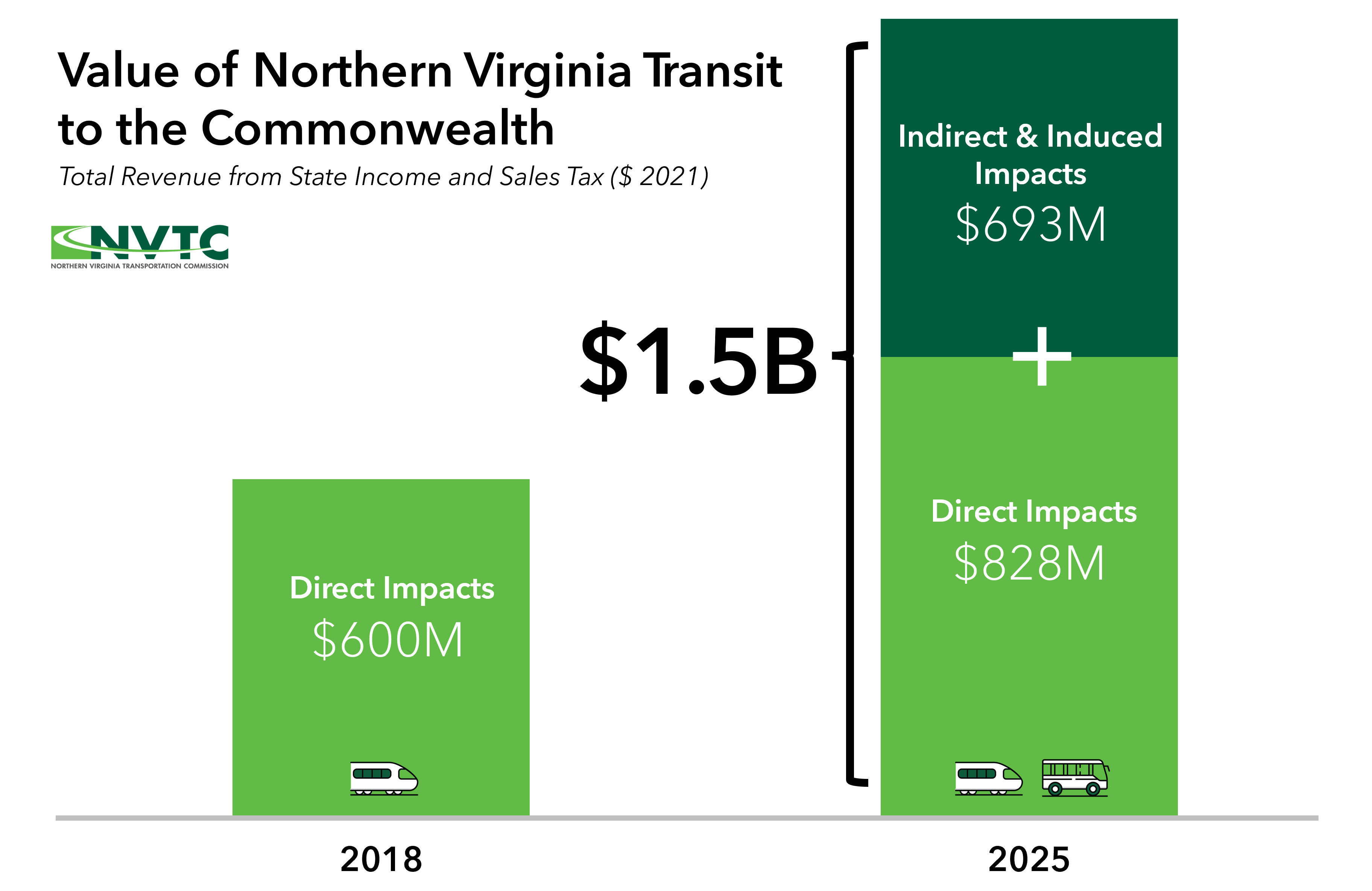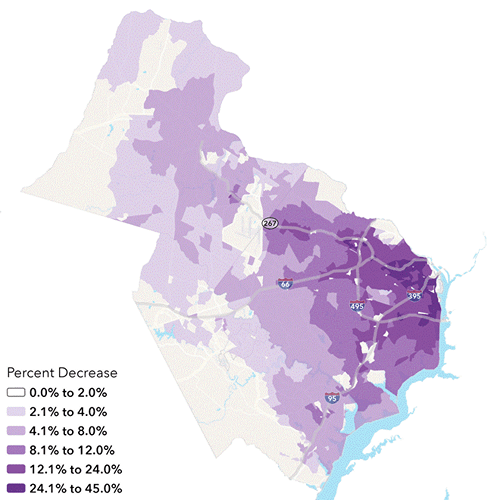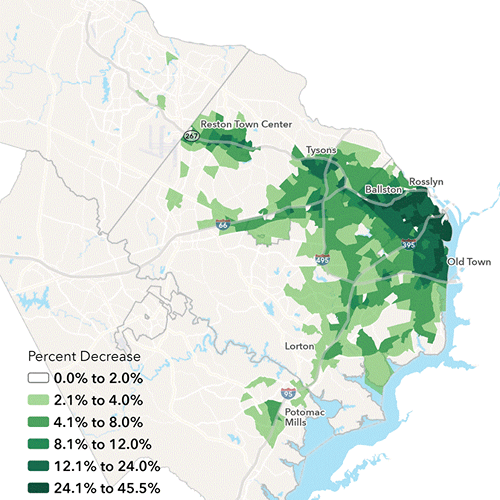
Northern Virginia’s bus, Metro and VRE network is a vital component of the region’s transportation system that supports its overall quality of life and economic competitiveness.
Northern Virginia’s transit network generates $1.5 billion in annual personal income and sales tax revenue for Virginia. Approximately $1 billion of it can be attributed to the Metrorail system.
The revenue makes up nearly 5% of the entire Virginia general fund, supporting programs and services across the Commonwealth.
Every dollar Virginia invests in transit in Northern Virginia generates an additional $1.60 in statewide revenue, a 160% return on investment.
Northern Virginians using transit removes congestion from I-95 and I-66, improving the reliability of vehicular travel for both people and freight across Virginia and along the East Coast.
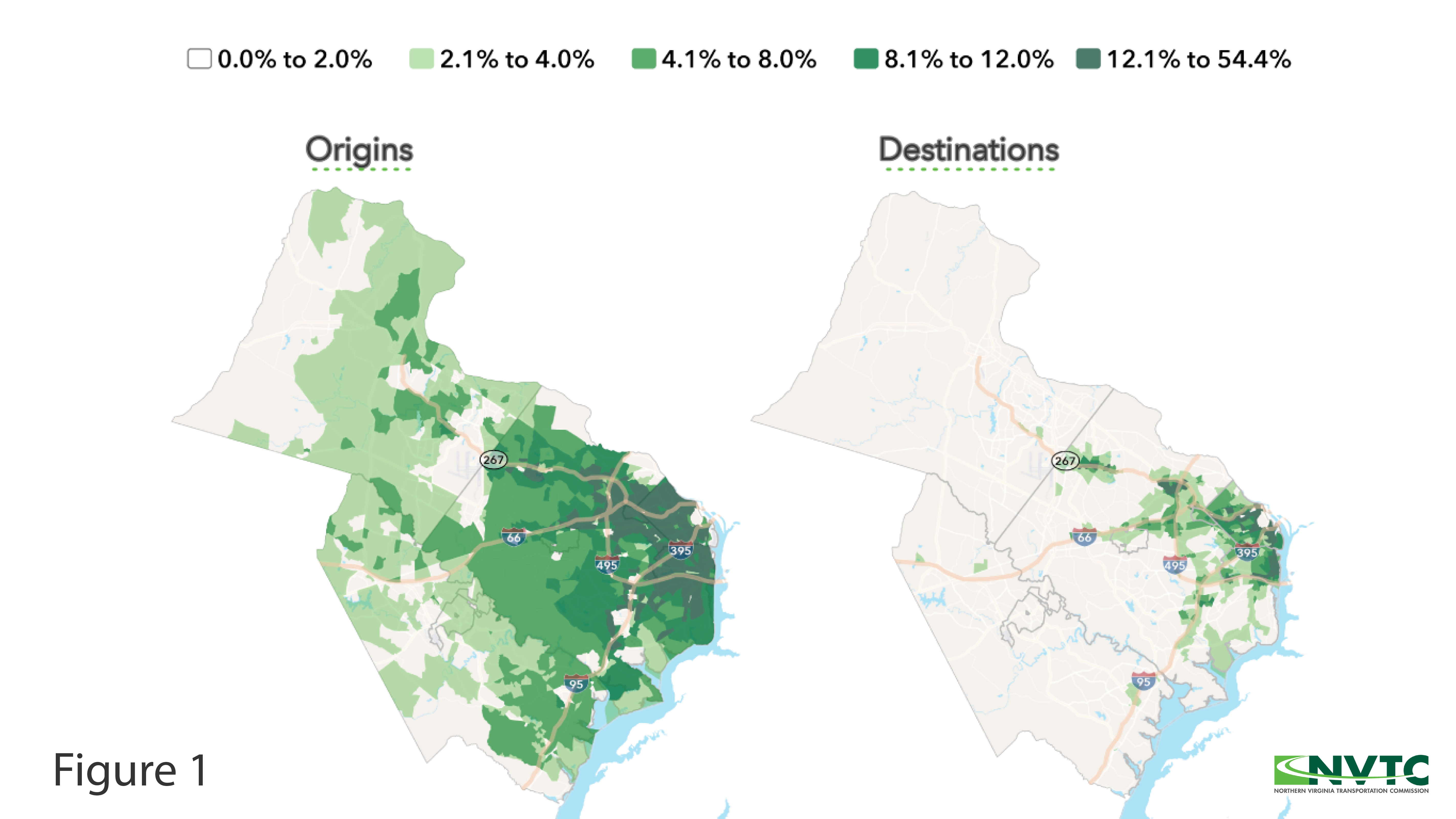
How many more morning vehicle trips would there be without transit?
Without the region’s transit network, more people would have to drive more places. There would be an additional 278,000 vehicle trips per day, leading to a 64% increase in delays due to congestion.
Figure 1 shows the increase in vehicle trips expected to occur during the morning commute as more people drive to get to their destinations. Inside the Beltway, vehicle trips would increase in many places by over 12%.
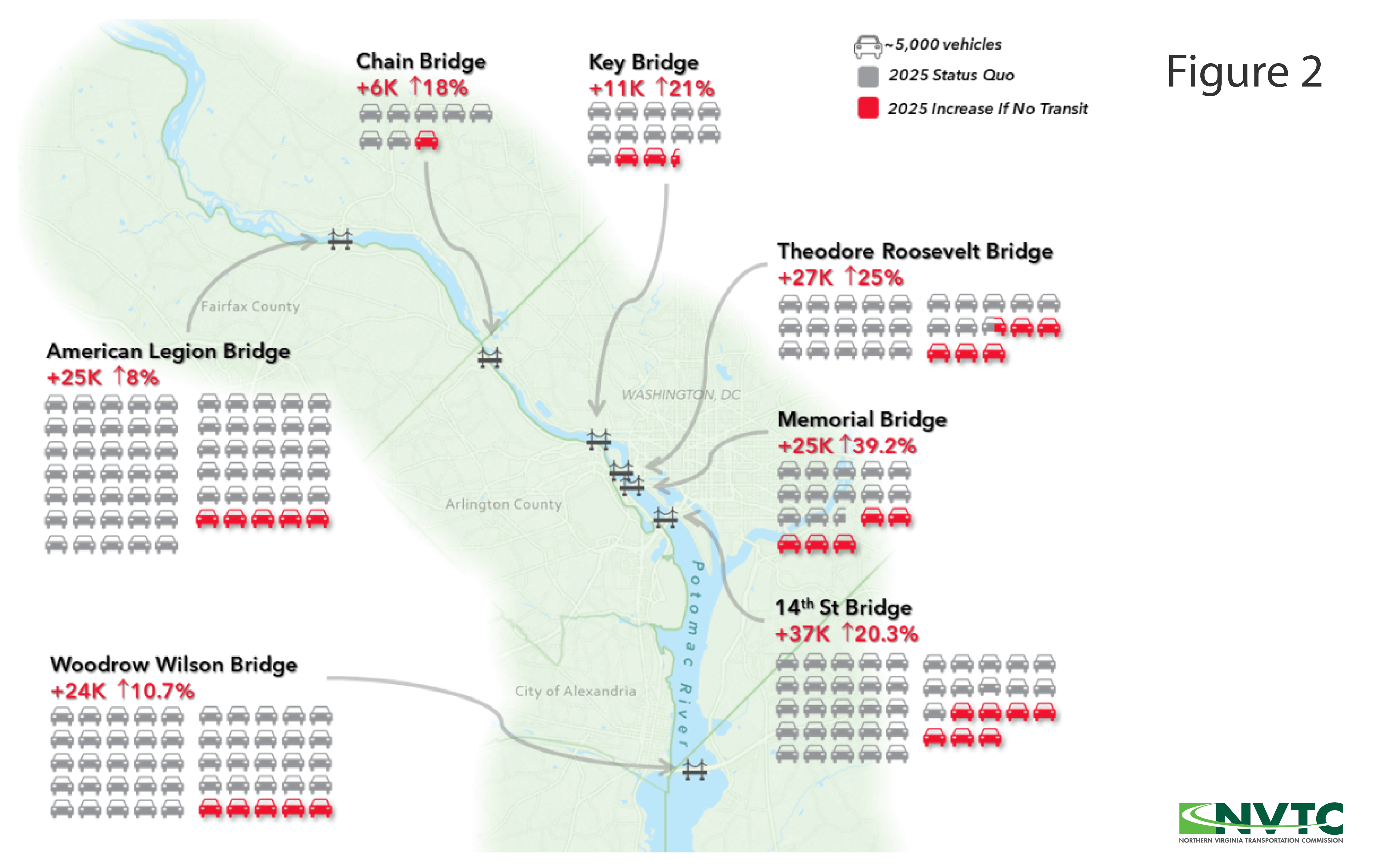
How much would bridge traffic increase without transit?
The increased congestion also leads to bottlenecks across our region’s bridges, particularly those that connect Virginia with DC. In peak periods, the Memorial, Roosevelt and Wilson Bridges would need two additional lanes and the 14th St Bridge would need three additional lanes to handle the projected traffic volumes.
Figure 2 shows the daily increase in bridge volumes when there is no transit available. The projected increase in daily vehicles crossing these bridges is equivalent to the combined population of Roanoke and Harrisonburg, or to the daily traffic that crosses both the Hampton Roads Bridge-Tunnel (I-64) and the Monitor-Merrimac Memorial Bridge-Tunnel (I-664).
The loss of those jobs would then lead to indirect and induced employment impacts. All told, transit supports 311,000 jobs – 270,000 in Northern Virginia and the remaining 41,000 in other parts of Virginia. The 311,000 jobs represent the total employment impact of the transit network, which includes the direct, indirect and induced employment impacts.
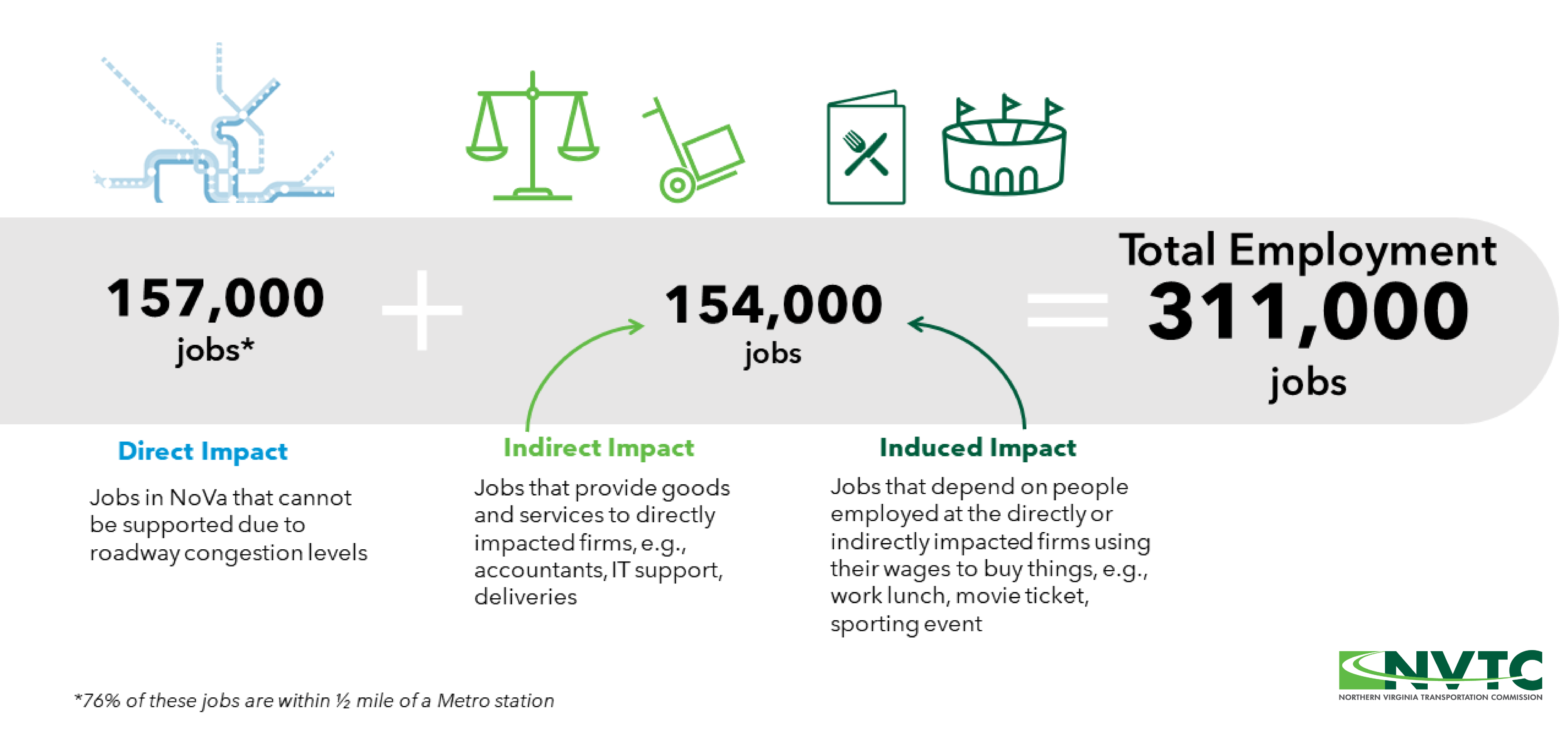
To quantify the value of Northern Virginia’s transit network to the Commonwealth, this study used the MWCOG Regional Travel Demand Forecasting Model to compare a “status quo” scenario for the year 2025 versus a “no transit” scenario for 2025. The “no transit” scenario removed VRE, Metrorail, regional buses and local buses from the network. The model was also adjusted to account for changes in travel patterns and mode choice resulting from COVID. This comparison allowed the research team to compare the increase in vehicle trips, vehicle miles of travel, and vehicle hours of delay that would occur in the region if transit did not exist. The next step was then to remove Northern Virginia households and employment from the model until congestion returned to an acceptable level that was similar to that of the 2025 “status quo” scenario. With the number of households and employment removed, the next step was to calculate reductions in total employment and earnings, followed by the loss in income and sales tax revenue to the Commonwealth. More information is available in the full technical report.
The Value of Metrorail and the Virginia Railway Express to the Commonwealth of Virginia.
Executive Summary (September 2017) and Technical Memorandum (January 2018)

